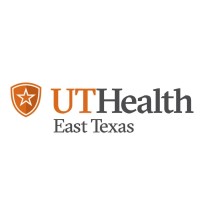
UT Health East Texas
Representing the very best in healthcare, UT Health East Texas is comprised of 10 hospitals and more than 90 clinics across East Texas. With nearly 7,500 employees and over 1,000 licensed inpatient beds, UT Health East Texas provides healthcare services to thousands of patients annually through our hospitals, clinics, Level 1 trauma facility, air emergency fleet and EMS in a metropolitan service area of a quarter million people. With the support of Ardent Health Services and the University of Texas System, UT Health East Texas is uniquely positioned to provide patients with access to cutting-edge research and clinical therapies while training and educating the next generation of physicians and other health professionals. At UT Health East Texas, our mission is to care for people — our patients, their families and each other. We do so while educating and developing the caregivers of the future.






